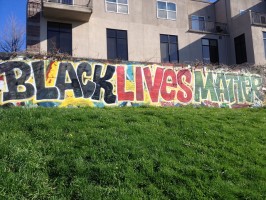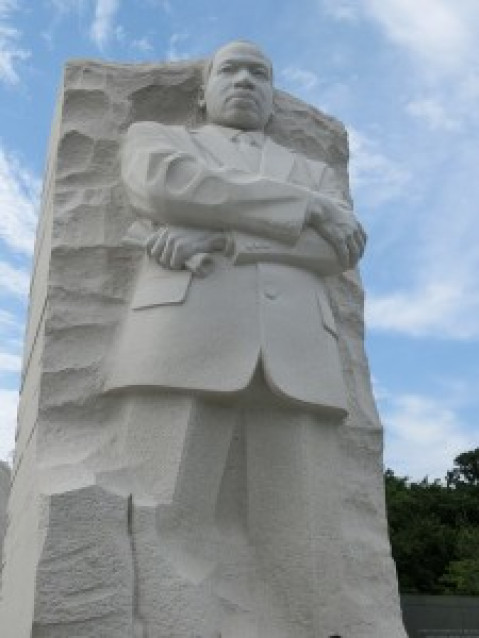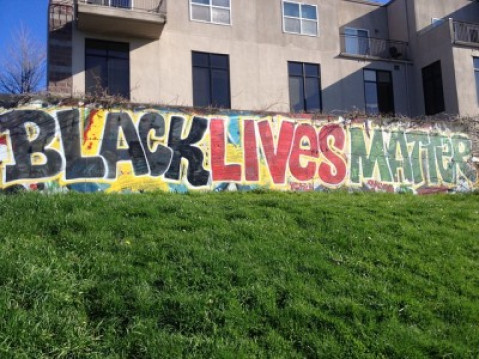Widgetized Section
Go to Admin » Appearance » Widgets » and move Gabfire Widget: Social into that MastheadOverlay zone
Keeping an Eye toward Racial Justice
The views expressed are those of the author and do not necessarily reflect the views of ASPA as an organization.
By Vanessa Lopez-Littleton
January 22, 2016
 As we celebrate the legacy of Martin Luther King, Jr., and the social movement he inspired, the struggle for racial equality remains a harsh reality in American society. More than 50 years after the signing of the Civil Rights Act of 1964, the cry for justice and fairness in the treatment of blacks continues. The Black Lives Matter movement is now one of the top trending political issues on social media. Some argue there is a declining significance of race while others contend discussions of race reinforce the racial divide and impede racial harmony. But race and racism are among the most highly contentious issues in America. According to a Pew Research Center analysis, 73 percent of blacks perceive racism as a big problem. An increasing number of whites (44 percent) believe racism is a big problem, an increase of 17 points since 2010.
As we celebrate the legacy of Martin Luther King, Jr., and the social movement he inspired, the struggle for racial equality remains a harsh reality in American society. More than 50 years after the signing of the Civil Rights Act of 1964, the cry for justice and fairness in the treatment of blacks continues. The Black Lives Matter movement is now one of the top trending political issues on social media. Some argue there is a declining significance of race while others contend discussions of race reinforce the racial divide and impede racial harmony. But race and racism are among the most highly contentious issues in America. According to a Pew Research Center analysis, 73 percent of blacks perceive racism as a big problem. An increasing number of whites (44 percent) believe racism is a big problem, an increase of 17 points since 2010.
The deaths of Trayvon Martin, Michael Brown and Tamir Rice fuel the perception of differential treatment when it comes to black lives. The public sentiment following these deaths has impacted the American psyche. A mere eight percent of blacks believe the country has made the necessary changes to achieve racial equality in contrast to 40 percent of whites. Although 86 percent of blacks believe more should be done for blacks to achieve equal rights, only 53 percent of whites find the same to be true.
The differential experienced by blacks has become institutionalized in many spheres of the public sector. Disparate outcomes exist in education, employment, health care, housing and the criminal justice system. The fact that disparities exist is a dismal representation of the legacy of Martin Luther King, Jr., and the hope and change sought by President Barack Obama. For many, Mr. Obama’s presidency represented hope that change would occur in many facets of American life. Improvements have been made on a variety of fronts but institutional racism is pervasive and maintains a deleterious effect on progress.
The Black Lives Matter movement is one of many platforms where citizens are speaking out against perceived injustices within public institutions. Campaign Zero grew out of the Black Lives Matter movement and represents a grassroots effort to end police violence. Conceived by protesters, researchers and activists, the agenda calls for:
- Effective civilian community oversight structures
- Independent investigation and prosecution of all cases where civilians are killed or injured by police
- Law enforcement personnel who reflect the communities they serve and community feedback to inform police department policies and practices
- Establishing standards and reporting of police who use deadly force, as well as revising and strengthening use of force policies
- Requiring the use of body cameras with appropriate policies governing their use and banning police officers from confiscating the equipment of those who film their actions
- Ending the government’s distribution of military weaponry to local police departments
- Removing barriers in union contracts that hinder the investigation of police misconduct and limit civilian oversight
- Increasing the training of police officers in tactics that support and preserve life
- Ending systems and policies that generate a profit for police departments
- Preventing police from confiscating property without prosecution
- Ending stop-and-frisk policing, profiling and “broken windows” policing (targeting minor offenses as a tactic to deter serious crimes)
- Establishing alternative mental health intervention policies
 The Black Lives Matter movement is one effort where young people are not waiting for the courts or relying on government institutions to distribute justice. Even in the face of those who contend their efforts are misguided, the group remains focused on police violence as their call to action. The solutions they have proposed should not be viewed as a threat to the system but an effort to challenge structures, which drive disparities for racial groups.
The Black Lives Matter movement is one effort where young people are not waiting for the courts or relying on government institutions to distribute justice. Even in the face of those who contend their efforts are misguided, the group remains focused on police violence as their call to action. The solutions they have proposed should not be viewed as a threat to the system but an effort to challenge structures, which drive disparities for racial groups.
Even though racism and racist acts may occur, it is when these actions are within the purview of government and government actors that the insults become particularly injurious to society. The efforts of Black Lives Matter and other social change groups seek to bring about transformation by creating a sustained tension and promoting public discourse. These efforts seek to disrupt institutionalized systems of oppression that produce disparate outcomes and contribute to the disadvantage experienced in residentially segregated communities.
Public institutions have a burden of ensuring public service professionals are prepared to meet the needs of an increasingly diverse and demanding citizenry. To be effective, public service professionals will need to be trained to be responsive to the citizens they serve. In much the same way, policymakers and administrators should be responsive to the demands of the people. Conversations about race and racism serve as a sound starting point, but they do not go far enough to generate true change. In order for the country to achieve racial equality, efforts to identify and eliminate institutional racism and its harmful effects must be prominent parts of the agenda. Academic programs charged with preparing the next generation of public service professionals will need to ensure students are prepared to provide services and implement policies while keeping an eye toward racial justice.
Author: Vanessa Lopez-Littleton, Ph.D., RN, is an assistant professor in the Department of Health, Human Services and Public Policy at California State University, Monterey Bay.






Pingback: Keeping an Eye Towards Racial Justice | Stirring Up Trouble by DrVLoLil